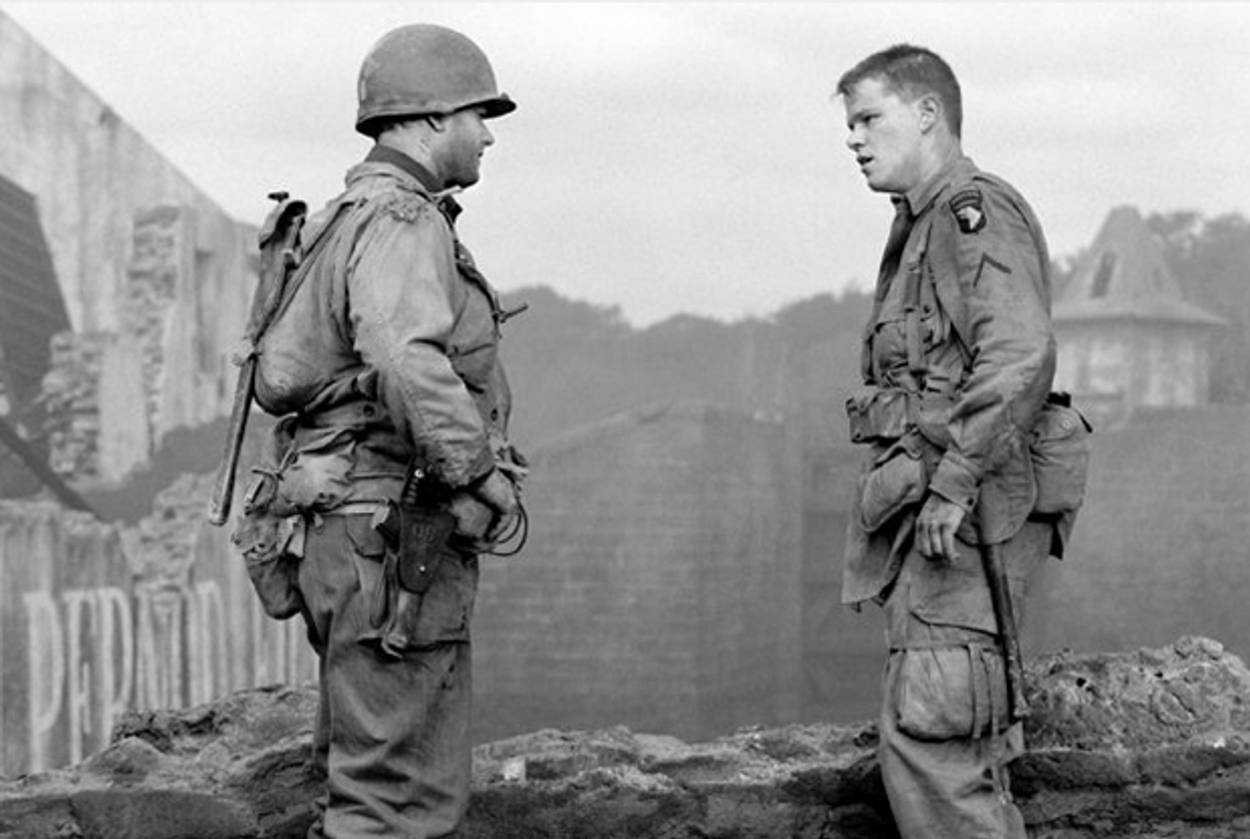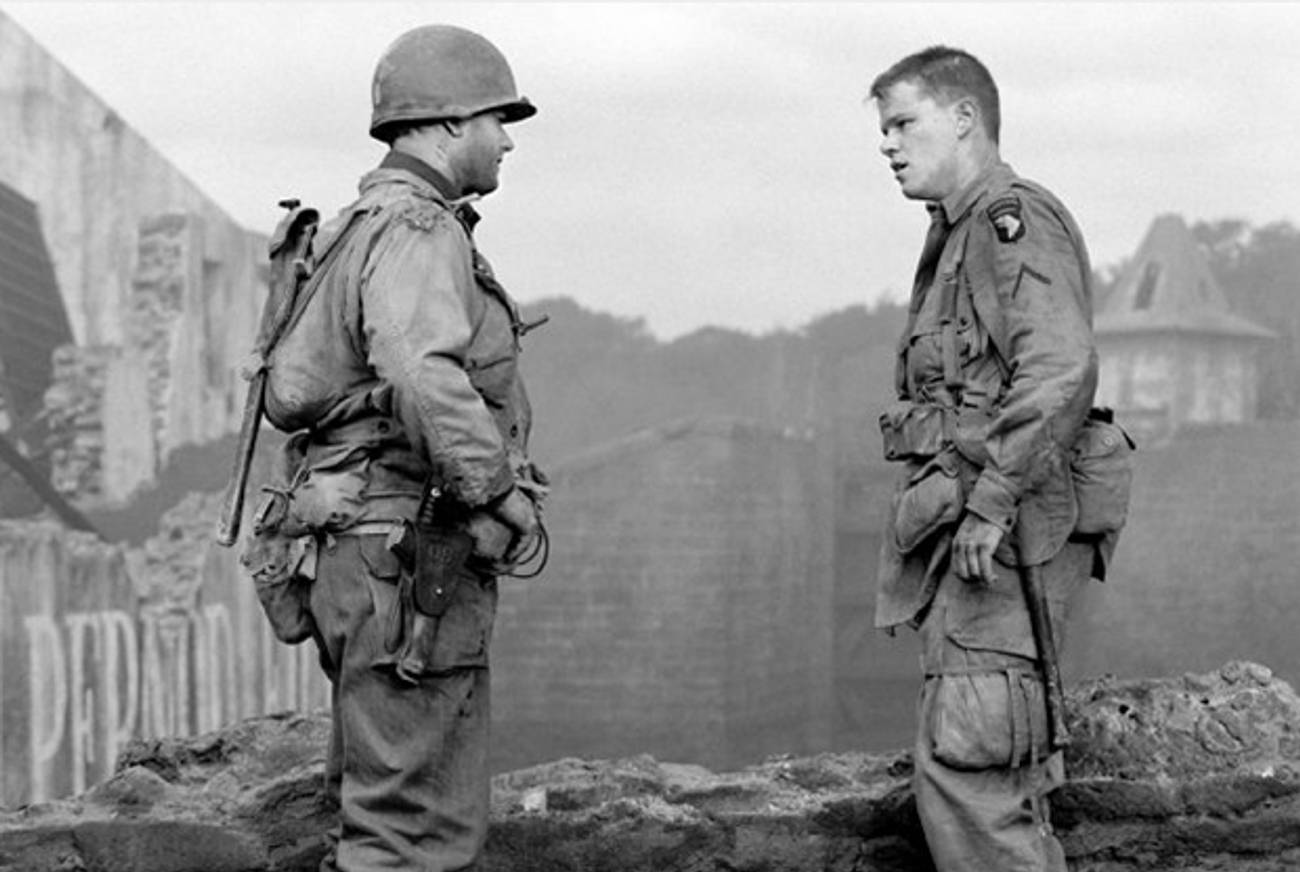The Biblical Side of ‘Saving Private Ryan’
Spielberg’s WWII epic alludes to Abraham Lincoln and Abraham the patriarch




At the heart of Steven Spielberg’s Saving Private Ryan is an act of compassion.
After learning that the mother of four U.S. servicemen has lost three sons in one week—two at Normandy and one in the Pacific—Army Chief of Staff George Marshall orders that the fourth, a paratrooper located deep behind enemy lines, be found and sent home, so as to spare the mother any further suffering.
Saving Private Ryan is not an explicitly Jewish movie. It’s conceivable that after Schindler’s List, which came out less than five years before it, Spielberg was looking to work in a more universal—or at least in a more decidedly American—idiom. Still, the treatment shown to the film’s Iowa mother—and other figures in the script—is consistent with Jewish law and custom in ways that add texture and meaning to the film as a whole.
According to the biblical commandment known as shiluach haken, one may not remove eggs or chicks from a nest unless the mother bird is shooed away first. The rationale for the injunction, rabbinic tradition holds, is that if we treat the bird with compassion it helps us instill the trait in ourselves. The mitzvah of shielding the mother bird is often compared to the law of honoring one’s parents. The reward for fulfilling the two commandments is the same: longevity.
Filial piety, defined so as to include father figures as well as fathers, is the organizing principle behind Saving Private Ryan. The film opens with an aging World War II veteran—we later learn that he is the film’s eponymous Ryan—shuffling through the Normandy American Cemetery while his wife, son, and grandchildren remain at a respectful remove. Only when he falls to his knees and weeps before one of the tombstones do they join him. The grave, we learn, is that of Captain Miller, the aloof but steadfast former English teacher (Tom Hanks) who is treated by his men with a kind of hushed awe. The film’s soldiers evince a deep respect for the chain of command. When Captain Miller gets the order to go and save Ryan, his commanding officer, played by the late Dennis Farina, offers a long dramatic pause before making it clear that “this one’s straight from the top.” And while there’s grumbling in the face of Marshall’s order—“Hey, I got a mother,” says a smart-alecky Brooklyn private played by Ed Burns—the mission is carried out to the letter, even though it results in more casualties than it does soldiers saved.
The film’s forefather and guiding spirit is Abraham Lincoln, whose letter to the widow Bixby—a Boston mother who lost five sons in the Civil War—is treated by the film as a kind of founding document and legitimizing force. “I feel how weak and fruitless must be any word of mine which should attempt to beguile you from the grief of a loss so overwhelming,” Lincoln perhaps wrote (there is some dispute over whether he or his secretary John Hay authored it). “I pray that our Heavenly Father may assuage the anguish of your bereavement, and leave you only the cherished memory of the loved and lost, and the solemn pride that must be yours to have laid so costly a sacrifice upon the altar of freedom.”
To this long list of fathers one must also add Spielberg’s own, Arnold, a World War II vet, from whom the director had long been estranged and with whom he’d reconciled around the time Saving Private Ryan was made.
Ryan has been called a lopsided film that never recovers from the force of the riveting 25-minute D-Day sequence with which it opens. The story of Ryan’s rescue has been seen as too small, too morally murky to stand up beside the raw power of the film’s battle scenes. But seen from a bird’s eye view—the bird shielded from the harm done to her young—the film burns with the fire of a mother’s love, and the wisdom of centuries.
Saving Private Ryan will be screened at New York’s Museum of Jewish Heritage on Wednesday, July 2, at 6:30 p.m. as part of the free summer-long series Close Encounters of the Spielberg Kind, which will continue every Wednesday through August 13.
Previous: Is ‘Raiders’ the Most Audacious Holocaust Movie Ever?
Related: Avraham Lincoln Avinu
Gabriel Sanders is Tablet’s director of business development.